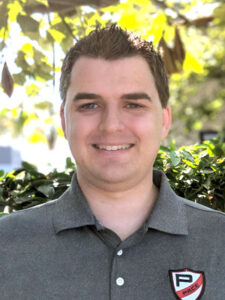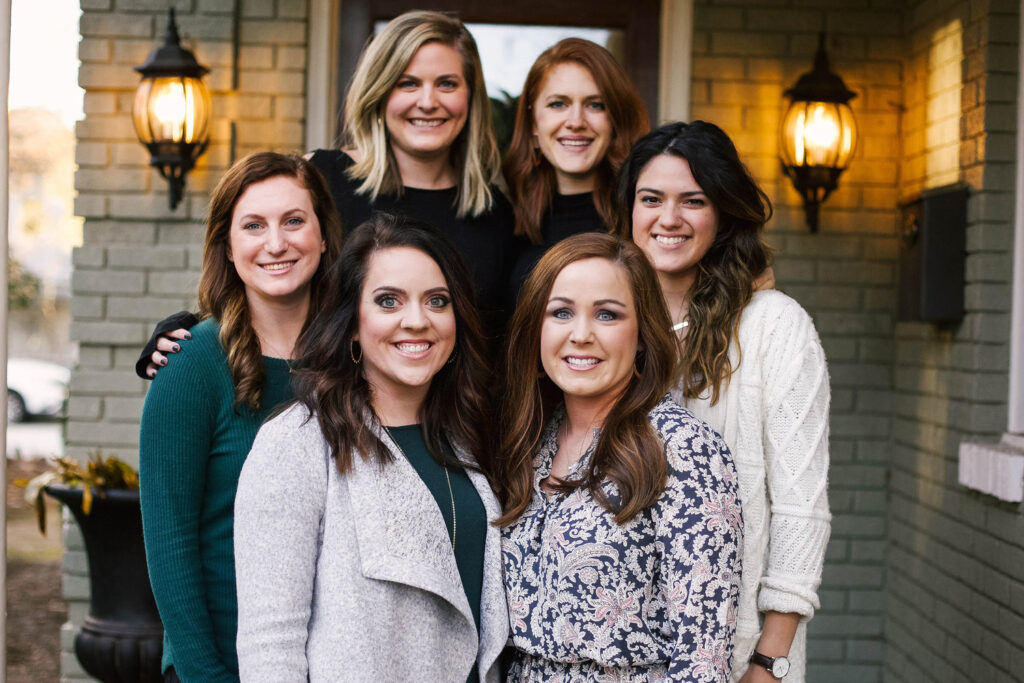PACE Recovery Center’s own Brett Furst appeared on the podcast for Quiver Full Adoptions, a South Carolina-based adoption agency and advocacy group. With core values of “serve, encourage, empower,” Quiver Full Adoptions seeks to support adoption journeys for both adoptive couples and biological families.
Brett Furst, a licensed marriage and family therapist, has worked at PACE Recovery as a primary therapist for three years. On the podcast, he discusses his personal experience as a child of adoption, as well as his specific recommendations for aspiring adopters and their future children.
Podcast Recap
Beginning with his introduction to the field, Brett explains that he always wanted to be a child therapist, but found his calling with adolescents and young adults. From there, he felt drawn to working with adoptees, saying, “I noticed that we were getting quite a few adopted individuals, and being adopted myself, I saw that there was a need to treat this population.”
Brett describes PACE Recovery Center’s inpatient treatment options, including its unique Adoption Programming and mental health house. He emphasizes the importance of attending an outpatient program after completing the required 90 days of inpatient treatment, calling it the “push comes to shove moment” in one’s recovery journey.
Questions & Answers
We’ve highlighted some of Brett’s Q&A with Casey Brown and Elizabeth Bordeaux of Quiver Full Adoptions below. Read on for a snippet of the interview, then listen to the complete podcast.
On being adopted, and how this informs his practice with the men at PACE –
Brett Furst, PACE Recovery: “My adoptive parents did a fantastic job, I have no memory of not knowing that I’m adopted. It never really came up for me in my life as a major issue. Until I started seeing this population in my practice – how is my story going to integrate with theirs? It’s really helped in this connecting way with my clients, but at the same time, it also allows me to say, ‘I know your story is unique to you.’ We share this commonality, but that commonality is that each one of us that are adopted is unique in their story.”
Quiver Full: “Do you feel like children who are adopted have a higher risk of struggling with addiction?”
Brett Furst, PACE Recovery: “So, unfortunately, yes. There’s significant evidence out there that shows that adopted individuals – some research even says they’re twice as likely to become addicts as the ‘non-adopted’ population… We know that they’re out there, but we have trouble treating them. It’s nature and nurture.”
Quiver Full: “How can we, as parents of adoptees, equip them so that they’re not as likely to struggle with addiction? Is that even possible?”
Brett Furst, PACE Recovery: “Yes, it’s definitely possible. There are many, many ways to kind of help with this, and in my experience in working with this population, the number one thing is to have open and consistent and continuous conversations about this with the child. Oftentimes as adults, we underestimate the intellectual capacity of our children, and they can usually understand quite a bit more than we give them credit for. Even if it’s when you first adopt the child, making sure – depending on the age – that they understand that they’re adopted, or why they’re adopted, or getting their feelings on being adopted – don’t be afraid of these conversations. It can be a difficult subject for adoptive parents to bring up, there isn’t really a handbook, but having those conversations is super important. Whether you talk about it or not, it’s there.”
On common misconceptions about children of adoption –
Brett Furst, PACE Recovery: “This is where I see a lot of clinicians who are not adopted themselves – they automatically assume, say, an 18-year-old is always going to want to meet their birth parent, and they consider it weird if they don’t want to meet them. In my work, I see that as a misfire sometimes. I think giving the child the option, or at least giving the information you have, is definitely good, but there shouldn’t be a pressure of, ‘you really should, it’s normal.”
Quiver Full: “What’s one thing that you would tell all hopeful adoptive parents?”
Brett Furst, PACE Recovery: “A lot of what I’m saying sounds scary, I understand that, but please, please, please, don’t be afraid of this. It can be managed, and it can be helped, and it can be changed. Just in the same way that any parent with any child has a chance of that child having issues down the road, there’s a lot of stigma around the guys that I work with, adopted or not. Having those conversations, putting that effort in at the beginning, can really change the whole game. If – unfortunately – a child does have an addiction problem or some kind of mental health problem down the road, it doesn’t necessarily mean that you did something wrong. It doesn’t mean that you messed up. It is 100% possible for them to fully recover and have a perfectly normal, happy, healthy, successful life. So, in the event that they end up with a substance use issue, it’s not the end of the world. It is treatable.”
Listen to the Podcast
Listen to the full podcast to hear the complete details of PACE Recovery’s philosophy and its one-of-a-kind adoption-related treatment path. Brett covers much more than is outlined here, including his dual focus on attachment and authenticity in recovery programs for adopted youth with substance use disorders.
You can listen to the podcast on iTunes, Android, or Spotify – look for the episode titled “Episode 9: Interview with Brett Furst.” Learn more about Quiver Full Adoptions on their website and tune in to their podcast in June to hear Brett’s next talk.




